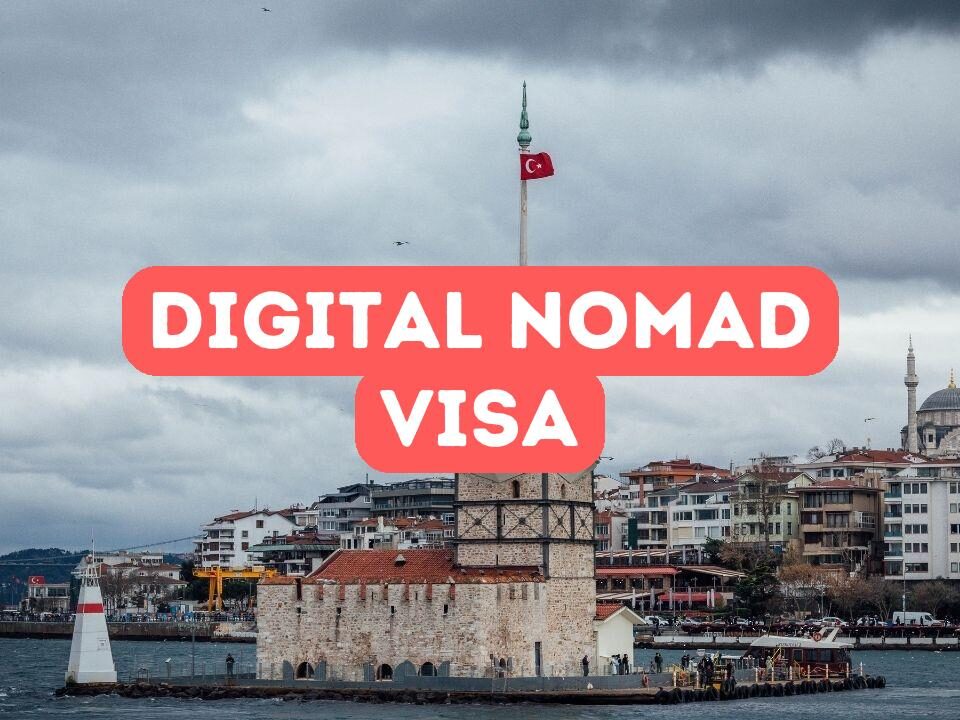Turkish Visa for Remote Workers: Requirements and Opportunities for Location-Independent Professionals
Turkish Visa for Remote Workers: Requirements and Opportunities for Location-Independent Professionals

With the rise of remote work and the increasing popularity of digital nomadism, Turkey has become an attractive destination for location-independent professionals seeking a change of scenery. If you’re a remote worker considering Turkey as your next base, it’s important to understand the visa requirements and opportunities available. In this blog post, we will provide a comprehensive guide on obtaining a Turkish visa for remote workers, including the necessary documentation, application process, and the potential benefits and opportunities for location-independent professionals in Turkey.
Understanding the Visa Options for Remote Workers:
- Short-Term Residence Permit: Remote workers can apply for a short-term residence permit, which allows them to legally reside in Turkey while continuing their remote work activities.
- Work Visa: If you are planning to work for a Turkish company or collaborate with Turkish clients, you may need to explore the work visa options available.
Required Documents for Remote Work Visa:
- Passport: Ensure your passport is valid for at least six months beyond the intended duration of your stay in Turkey.
- Proof of Remote Work: Provide documentation that demonstrates your remote work activities, such as employment contracts, client agreements, or proof of self-employment.
- Financial Means: Show evidence of sufficient financial means to support yourself during your stay in Turkey.
- Health Insurance: Obtain health insurance coverage valid in Turkey for the duration of your stay.
- Accommodation Arrangements: Provide proof of accommodation arrangements in Turkey, such as a rental agreement or hotel reservation.
Application Process:
- Research Visa Requirements: Familiarize yourself with the specific visa requirements for remote workers in Turkey and determine the most suitable visa option for your circumstances.
- Gather Documentation: Collect all the necessary documents as per the visa requirements, including your passport, proof of remote work, financial means, health insurance, and accommodation arrangements.
- Apply Online or Visit Consulate: Depending on your nationality, you may be able to apply for the visa online or visit the Turkish embassy or consulate in your home country. Follow the application process and pay any applicable fees.
- Await Visa Processing: The processing time for remote work visas can vary. Stay in contact with the embassy or consulate for any updates or additional requirements.
Opportunities for Remote Workers in Turkey:
- Co-Working Spaces: Turkey offers a growing number of co-working spaces equipped with modern facilities, providing a conducive environment for remote work and networking opportunities.
- Digital Nomad Community: Joining the vibrant digital nomad community in Turkey can offer valuable connections, social events, and professional development opportunities.
- Cultural Experiences: Turkey’s rich history, diverse culture, and stunning landscapes provide an inspiring backdrop for remote workers seeking new experiences.
Conclusion:
Turkey has emerged as an enticing destination for remote workers, offering a blend of professional opportunities and a high quality of life. By understanding the visa requirements, gathering the necessary documentation, and following the application process, you can obtain a Turkish visa for remote work and explore the benefits and opportunities available to location-independent professionals in Turkey. Embrace the freedom to work remotely while immersing yourself in the vibrant culture and unique experiences that Turkey has to offer.
Videos About Residence Permit Application
You can watch our YouTube video about this topic:
- How to Apply for a Turkish Residence Permit: https://youtu.be/58vY6DeS5eA
- How to Get a Property Investment Residence Permit in Turkey: https://youtu.be/6Mb2p1Q2qd4
- How to Get Turkish Language Course Visa and Student Residence Permit in 8 Steps: https://youtu.be/YT7xpy90tDw
- How to Apply for a Family Residence Permit in Turkey: https://youtu.be/k8tlg5i9jJs
- Long-Term Residence Permit for Foreigners in Turkey: https://youtu.be/d8VF1yn53lU
- https://www.residentturkey.com/embark-on-your-language-adventure-applying-for-turkish-language-courses/
- https://www.residentturkey.com/embark-on-your-language-adventure-applying-for-turkish-language-courses/
- https://www.residentturkey.com/step-by-step-residence-permit-application-your-essential-guide/
- https://www.residentturkey.com/turkish-language-course-invitation-letter-visa-and-residence-permit/
- https://www.residentturkey.com/navigating-the-turkey-residence-visa-step-by-step-process/
- https://www.residentturkey.com/immigration-advisory-services-for-foreigners-in-turkey/
- https://www.residentturkey.com/demystifying-turkeys-immigration-rules-navigating-the-path-to-residency/
- https://www.residentturkey.com/immigration-restriction-codes-for-foreigners-and-deportation-cases/
- https://www.residentturkey.com/working-in-turkey-a-comprehensive-guide-for-foreigners/
- https://www.residentturkey.com/learn-turkish-as-a-foreigner-tips-and-resources-for-language-acquisition/
- https://www.residentturkey.com/living-permission-in-turkey-navigating-the-application-process/
- https://www.residentturkey.com/renewing-your-turkey-residence-permit-step-by-step-process/
- https://www.residentturkey.com/understanding-turkish-residence-law-rights-and-obligations/
- https://www.residentturkey.com/residence-permit-health-insurance-for-foreigners-in-turkey/
- https://www.residentturkey.com/understanding-turkey-residence-permit-fees-costs-and-payment-guidelines/
- https://www.residentturkey.com/discover-the-best-istanbul-hotels-your-guide-to-accommodation-options/
- https://www.residentturkey.com/essential-travel-tips-for-a-memorable-trip-to-turkey/
- https://www.residentturkey.com/unforgettable-experiences-things-to-do-in-turkey/





